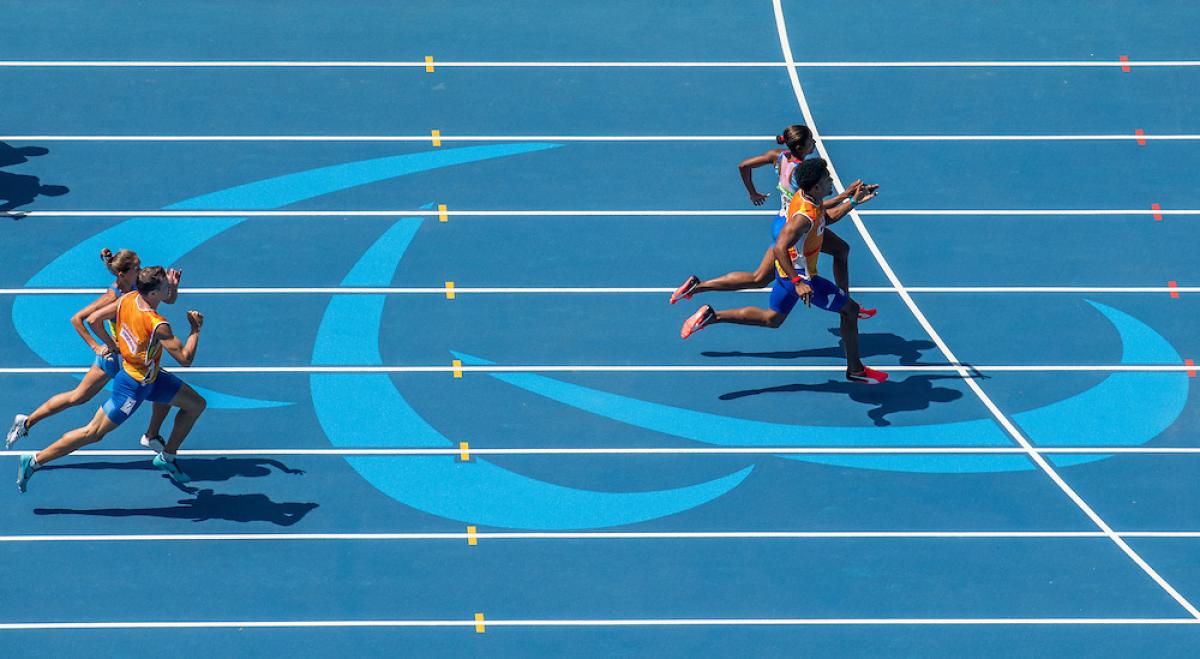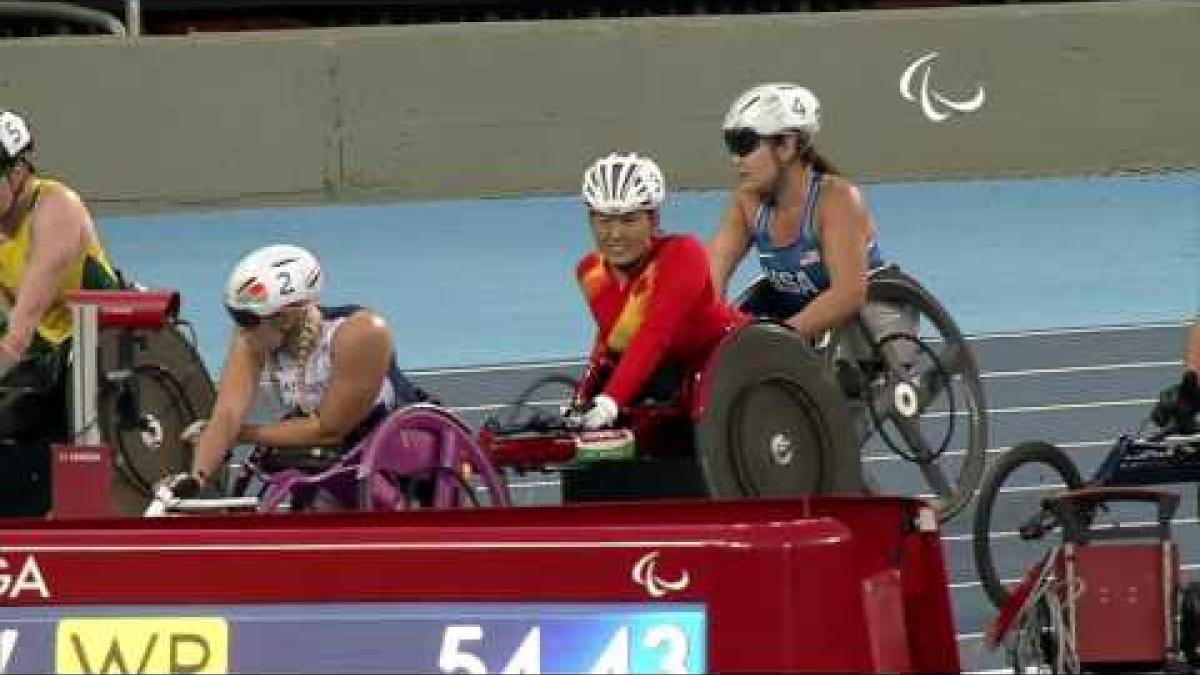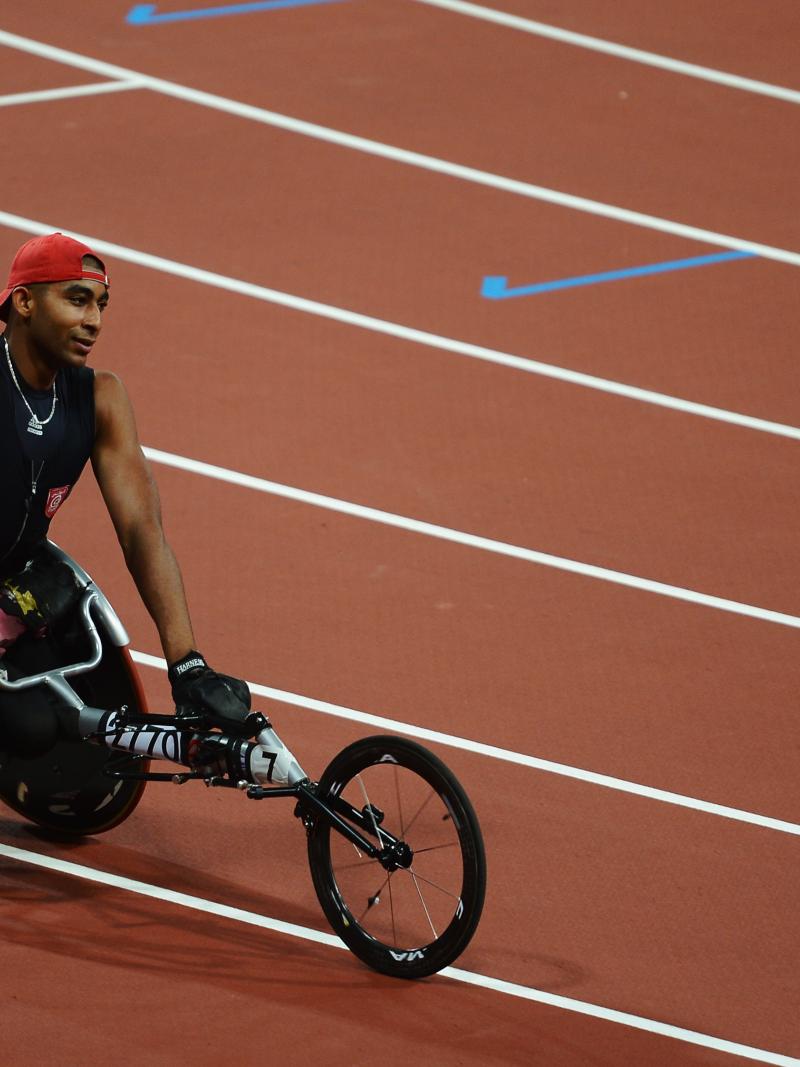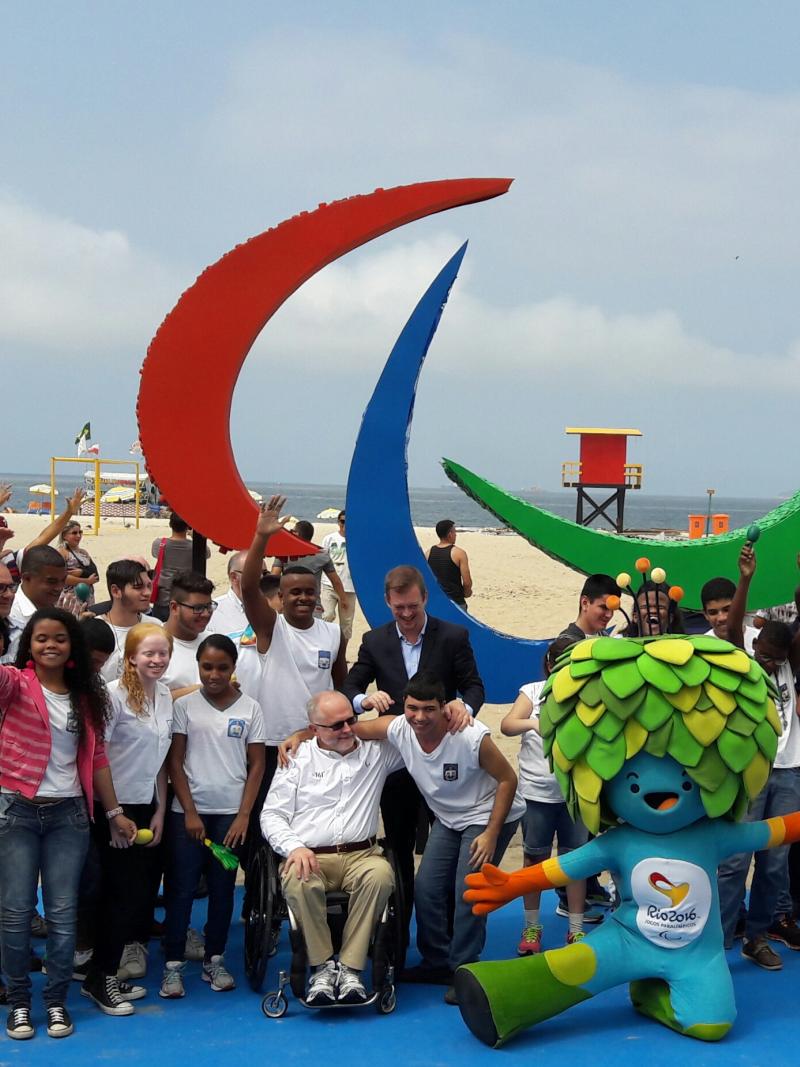Omara Durand bags another gold with Paralympic record
Cuba’s 24-year-old sensation blasted to victory in the women’s 200m T12 final and could claim a third medal on Saturday (17 September). 12 Sep 2016
Omara Durand CUB comes off of the bend with her guide Yuniol Kindelan ahead of Oksana Boturchuk UKR and her guide Volodymyrto Burakov to win the Gold Medal in the Women's 200m - T12 Final in the Olympic Stadium.
Cuba’s triple world champion Omara Durand, the fastest female Paralympian in the world, clinched her second Paralympic sprint title at Rio 2016 as she stormed home to win the 200m T12 on Monday (12 September).
The 24-year-old is aiming for a hat-trick of gold medals at Rio 2016 and remains firmly on track after yet another dominant display at the Olympic Stadium in Rio.
Double gold medallist at London 2012, Durand raced into the history books last year when she clocked 11.65 at the Parapan Am Games to become the fastest female Paralympian of all time. It was Durand’s first major event back on the track after the birth of her daughter Erika.
She lowered that time further at October’s World Championships, and did it again winning the 100m on Friday (9 September) in 11.40.
Durand was just 0.02 seconds off her world record mark in the 200m T12 final, and looked comfortable as she took the tape in 23.05, a new Paralympic record, with the 400m T12 still to come on Saturday (17 September).
“I am super happy, so excited. Having another medal for me and my country is so enjoyable. I want to win because there is rivalry, but the most important thing for me is to enjoy the race because the track is for all of us,” said Durand, who dedicated her gold medal to her teammate Yunidis Castillo, who pulled up injured in Sunday’s 100m T47 final.
“This medal is mainly for Yunidis Castillo. Yesterday she suffered a serious injury and I know that it is a bad moment for her now. It has happened to me before so I know how she feels.
“We are all humans, we spend almost all our career together so when a teammate suffers, I suffer too.”
The battle for silver was won by Ukraine’s Oksana Boturchuk (23.65), who set a new European record, while there was an Asian record for Azerbaijan’s Elena Chebanu (23.80) in third.
There was a second gold too for Ukraine’s Ihor Tsvietov, who added the 200m T35 title to the 100m crown he won three days earlier.
The 22-year-old also set a new Paralympic record as he raced to a clear victory in 25.11, with Brazilian Fabio da Silva Bordignon (26.01) recording a new Americas record for silver and Argentina’s Hernan Barreto (26.50) winning bronze – the trio repeating their podium finish of the shorter sprint.
“All my wishes have come true,” said Tsvietov. “I'm very tired but I did my best. This victory is not only mine, but it is a victory for the whole Ukraine team and our country.”
Dutch wheelchair racer Kenny van Weeghel (46.65) reclaimed the title he won back in 2004 as he took gold in the men’s 400m T54.
The 35-year-old has competed at every Paralympic Games since Sydney 2000, winning gold 12 years ago, then silver at London 2012 behind China’s Lixin Zhang.
Van Weeghel was made to work hard for his win, however, as China’s Yang Liu (46.79) came off the final bend challenging for first place. But the Dutchman’s power and strength shone through as he crossed the line nearly one second clear of Liu with Tunisia’s Yassine Gharbi (47.07) claiming bronze.
“I worked hard but I was worried at the beginning. I was not really confident I could win,” said van Weeghel.
“From the start, I had to catch up, I had to do my best effort in the first 200m because I knew that the others normally get back at the end.
“I’ve been doing sport for a lot of years and normally I know where I stand, and this time there was something different and I was not feeling confident.
“In the last 40m I think maybe I can win. You are tingling and you have to keep pushing and then you get over the finish line.”
There was an incredibly close finish to the men’s long jump T36 as just one centimetre separated all three medallists.
Australia’s Brayden Davidson and Brazilian Rodrigo Parreira da Silva both leapt a Paralympic record 5.62m but it was the 18-year-old Australian who claimed gold on countback while Ukraine’s Roman Pavlyk (5.61m) won bronze.
“To be out there is realising a dream for me. That was an incredible competition all the way back and forth, back and forth, me and Rodrigo, just pushing each other to the absolute limit,” said Davidson, who won Australia’s first Para athletics gold of Rio 2016.
There was no surprise as Great Britain’s Aled Davies turned his London 2012 shot put F42 bronze into gold at Rio 2016.
The reigning world and European champion and current world record holder led the way with his first attempt of 14.85m, improving to 15.97m – a new Paralympic record – in the third round.
Davies finished more than a metre clear of his rivals as Iran’s silver world medallist Sajad Mohammadian (14.31m) finished second once again. South African Tyrone Pillay (13.91m) took third place with a new African record.
The women’s shot put F53 was won by Bahrain’s Fatema Nedham – her country’s first-ever female Paralympic champion.
“I am too much happy. It was a hard competition, I only have two fingers in my hand but I won. I am so proud of giving this medal to the Kingdom of Bahrain and to carry our national flag,” said the 49-year-old, who threw 4.76m in the third round to set a new Asian record.
India’s Deepa Malik (4.61m) won silver and Greek thrower Dimitra Korokida (4.28m) clinched bronze.

 Facebook
Facebook
 Instagram
Instagram
 Twitter
Twitter
 Youtube
Youtube
 TikTok
TikTok
 Newsletter Subscribe
Newsletter Subscribe



